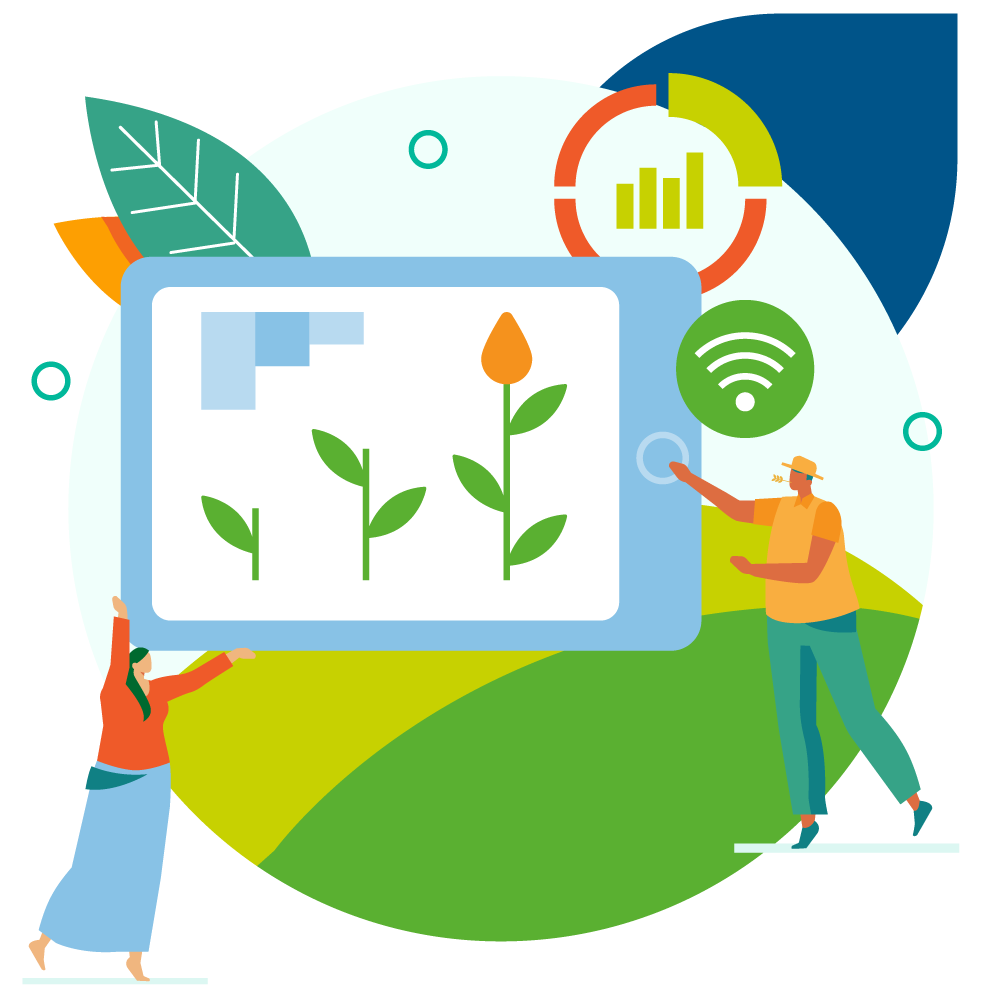These technologies also allow real-time data collection, which can be used in digital systems and shared, enabling farmers to make well-informed decisions about managing their fields. By embracing digital tools in food production, farmers can optimize their resources without sacrificing their crop output. The potential benefits are highly promising.

The Scientific Foresight Study published by the European Parliament underlines that precision agriculture methods can lead to a 20-30% decrease in pesticide use and a 50-80% reduction in the area where pesticides are applied. Given the current challenges and our goal of moving toward a more sustainable future, we need to produce food more efficiently while also reducing greenhouse gas emissions and keeping agricultural land use stable or lower.
Our sector is making significant investments in digital farming tools for European farmers. We’ve pledged to invest €10 billion by 2030 in new innovations related to precision and digital technologies.
A recent survey shows that farmers consider digital technologies essential for boosting productivity and sustainability. However, they are seeking immediate government support, including resources and clear policy adoption.
To achieve the sustainability objectives of the EU Green Deal and the EU Digital Strategy, both private and public investments are crucial for the future of farming in the EU.
Our digital agronomy flagship project
Digital Label Compliance
Digital Label Compliance “DLC” is CropLife Europe’s flagship project launched in the area of digital and precision agriculture.
It is a multi-stakeholder project, with the European farmers (COPA and COGECA) and the agricultural machinery manufacturers (CEMA). It aims to help farmers produce more sustainably, facilitate record-keeping, and ensure pesticides are used most safely and responsibly.
This is a huge investment for the sector and will contribute to demonstrating the implementation of Integrated Pest Management (IPM) and the responsible use of pesticides.